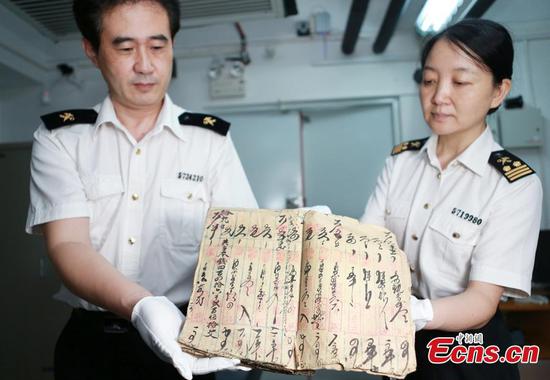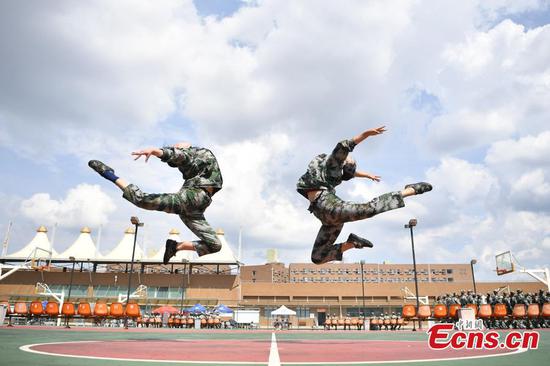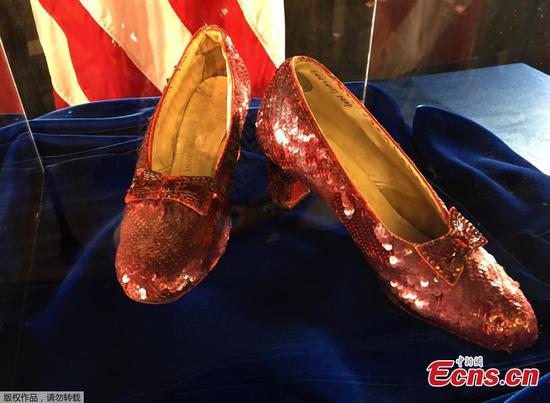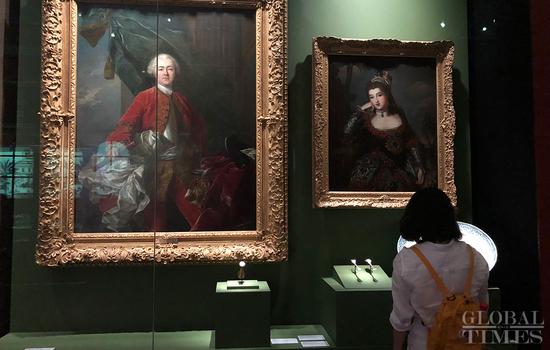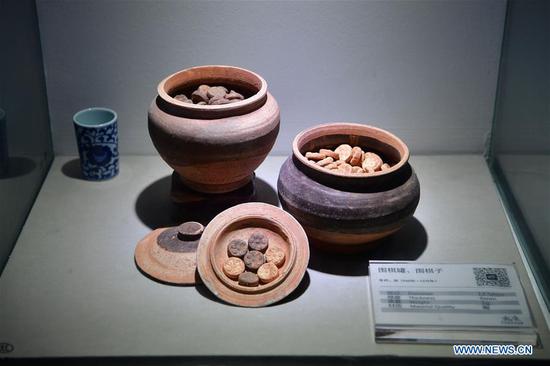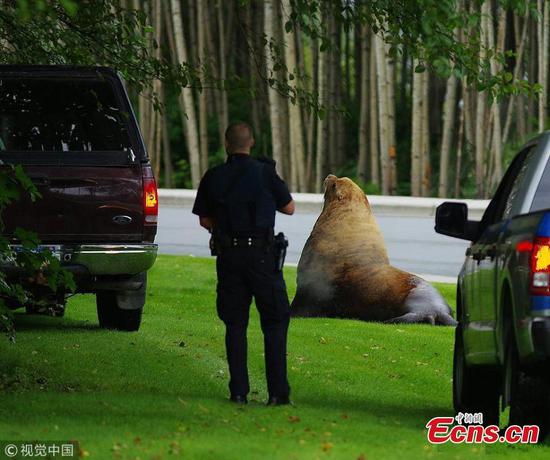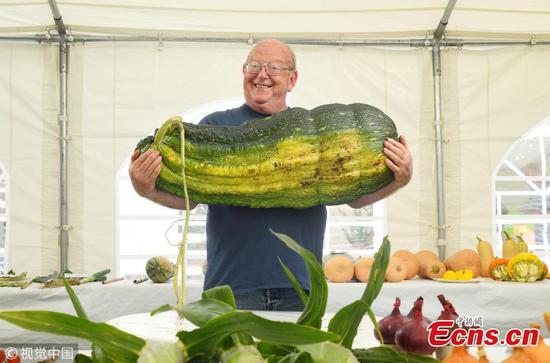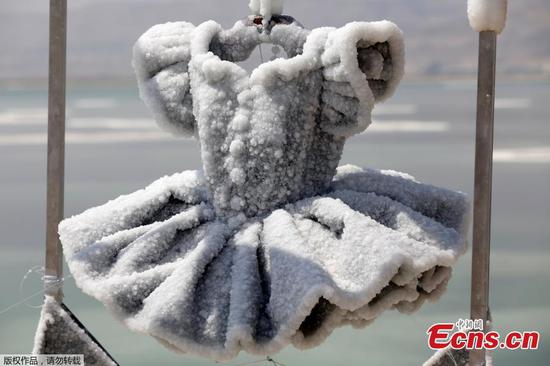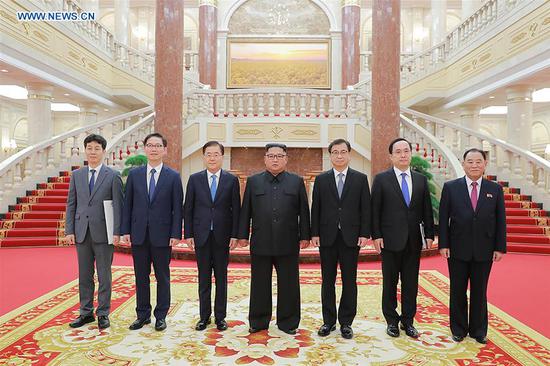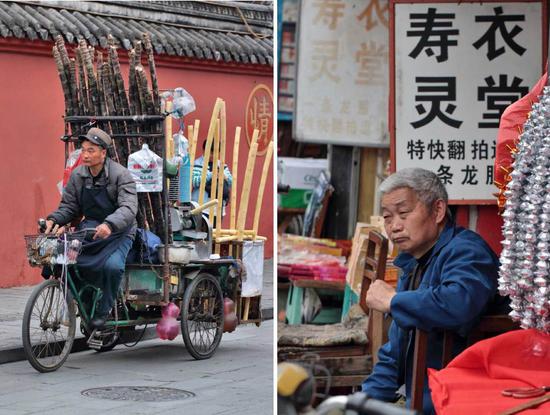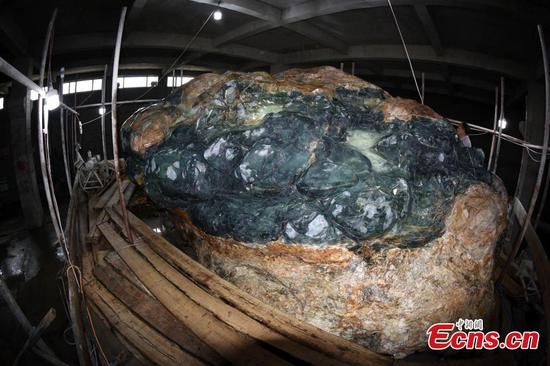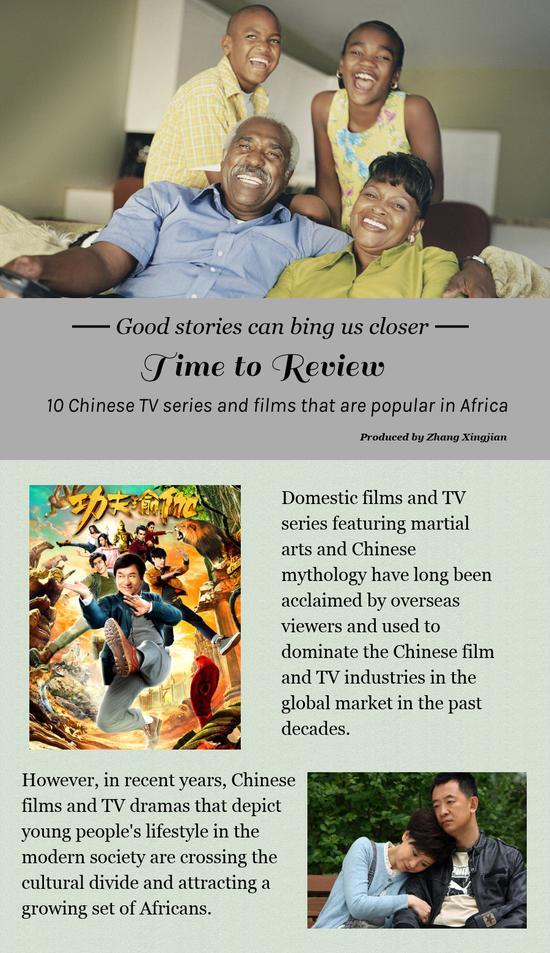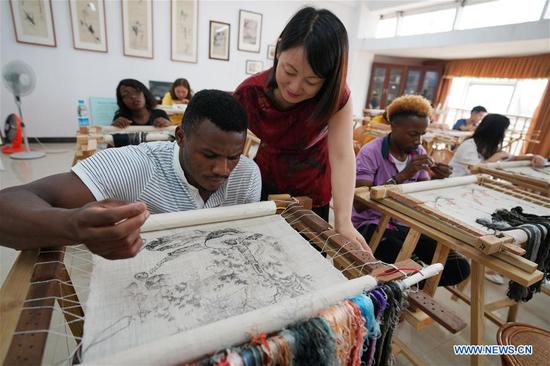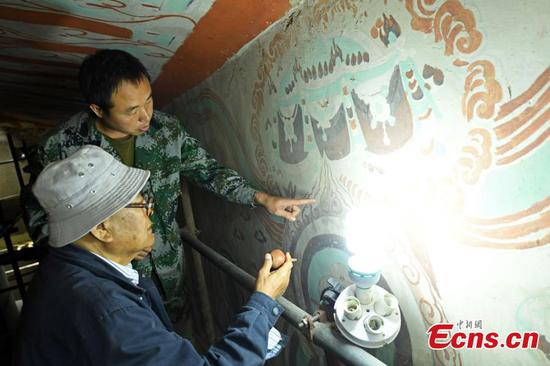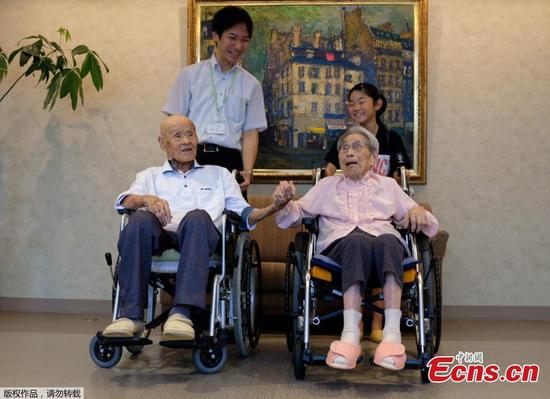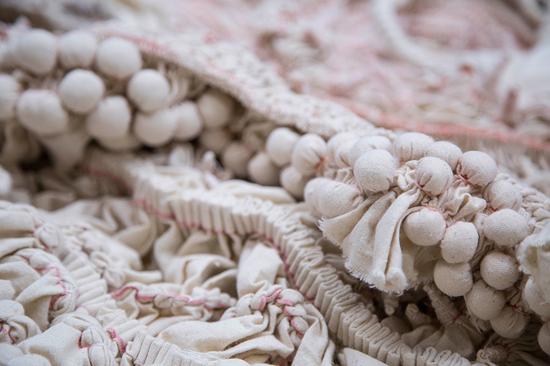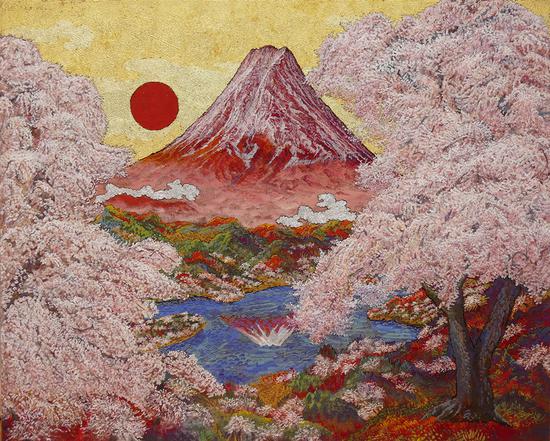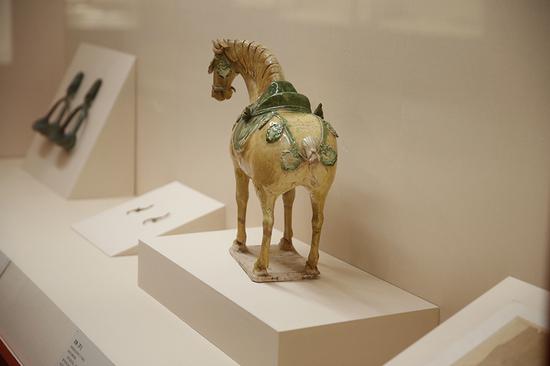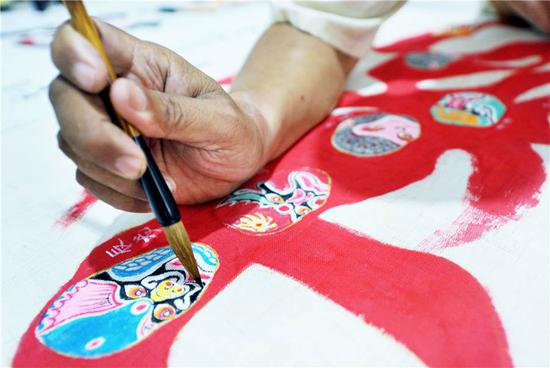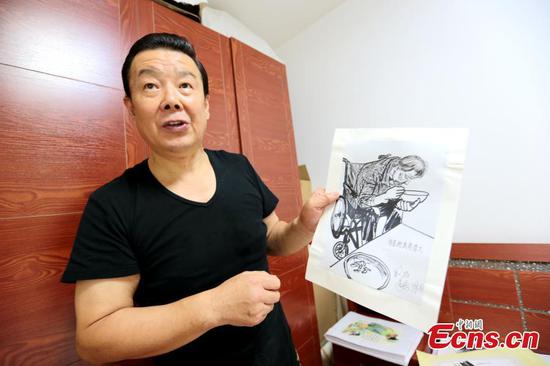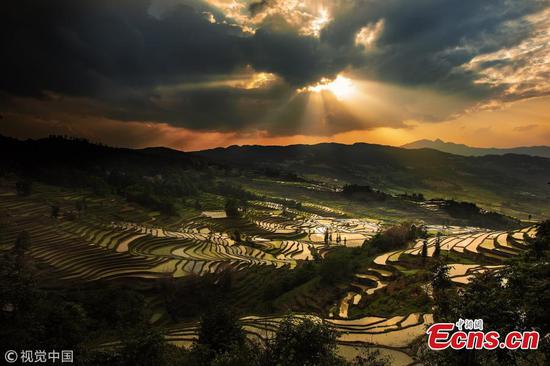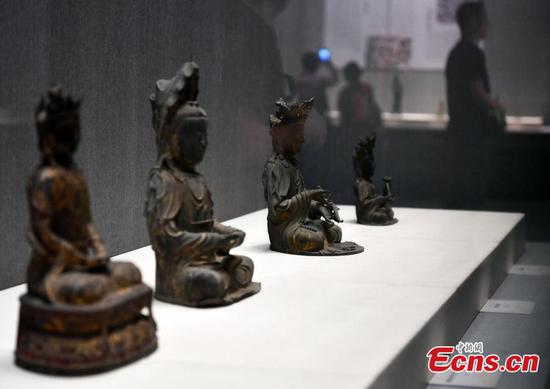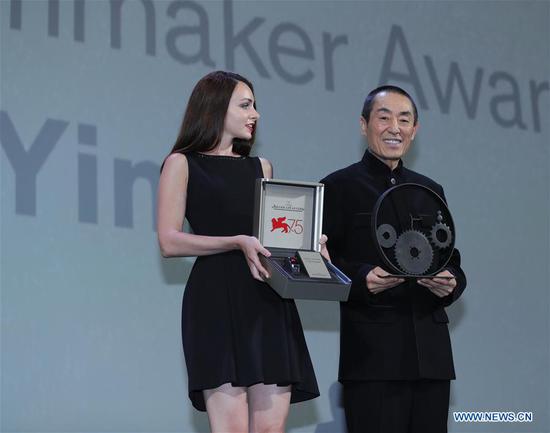
Chinese Director Zhang Yimou (R) receives the Jaeger-LeCoultre Glory to the Filmmaker prize during the 75th Venice International Film Festival in Venice, Italy, Sept. 6, 2018. (Xinhua/Cheng Tingting)
Celebrated Chinese filmmaker Zhang Yimou made a triumphant return to the 75th Venice Film Festival on Thursday with the world premiere of his latest film, "Ying" ("Shadow").
Zhang, whose work has influenced many Chinese directors, was also awarded the Jaeger-LeCoultre Glory to the Filmmaker Award, which is dedicated to "a figure who has left a particularly original mark on contemporary cinema."
"Every time I come back to Venice it's like coming home," he said in his acceptance speech.
"We have the return (after almost two decades) of a great master of Chinese cinema," noted Alberto Barbera, director of the Venice Film Festival.
Zhang won a Silver Lion for "Raise the Red Lantern" in 1991, following it up with a Golden Lion in 1992 for "The Story of Qiu Ju", which also garnered Gong Li the Coppa Volpi prize for Best Actress, and another Golden Lion in 1999 for "Not One Less."
"Zhang Yimou is back with a wonderful movie, which I'm sure will travel all over the world, (in a) welcome return to a kind of cinema that is interesting from every point of view, because it's a cinema that could please the audience, but at the same time is visually strong," said Barbera.
Zhang's new piece "Shadow" is a martial arts film set in China during the period of the Three Kingdoms (220-280 AD) and tells the story of a body double - "shadow" men who substituted royals and aristocrats in times of danger, ready to sacrifice their lives so their masters could live.
"A shadow must seamlessly meld with the real, so that true and false can't be distinguished," said Zhang. "I liked the idea of these political substitutes- the body doubles whose stories have never been told before."
Narrated with elegant visuals in a desaturated palette that draws on China's centuries-old tradition of ink brush painting, the movie alternates scenes which are rich in exquisite visual composition with dazzling battle sequences.
Zhang explained that in order to achieve the visual style of his film, he did not rely on computer effects but rather created sets that were "as complete as a painting" in terms of design, costumes, makeup, and lighting, while the battle scenes involved a month of shooting in the rain.
In the course of his long and distinguished career, the acclaimed Chinese director who is now in his late 60s has won dozens of awards around the world and garnered several nominations for the Palme d'Or at Cannes.
In 2002, his martial arts film "Hero" won him his third Oscar nomination for the best foreign-language film, establishing him as an icon of the Chinese cinema at the global level and garnering him the direction of the opening and closing ceremonies of the 2008 Olympics in Beijing.
Source(s): Reuters, Xinhua News Agency










